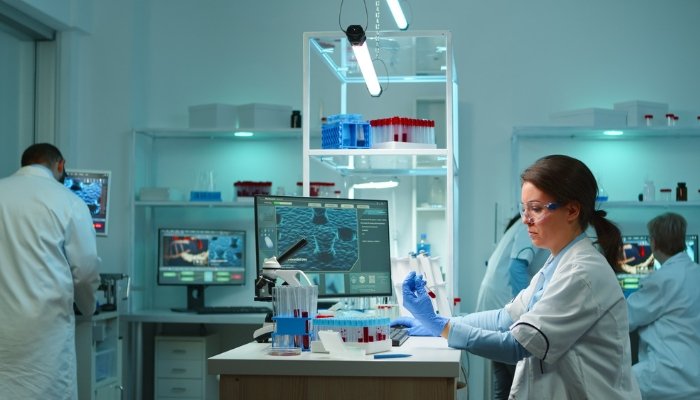Vaccine hesitancy refers to the delay in acceptance or refusal of vaccines despite the availability of vaccination services. It is a complex issue influenced by factors such as misinformation, cultural beliefs, and mistrust in healthcare systems. As trusted healthcare professionals, pharmacists play a crucial role in addressing vaccine hesitancy by providing accurate information, promoting vaccination, and addressing concerns of patients. This article delves into the roots of vaccine hesitancy, its implications, and the pivotal role of pharmacists in mitigating this challenge.
Understanding Vaccine Hesitancy
Vaccine hesitancy is not a new phenomenon. Throughout history, vaccines have faced resistance from certain segments of the population. This resistance often stems from a variety of sources, including:
Misinformation and Myths: False information about vaccines, such as the incorrect belief that vaccines cause autism, can spread quickly, especially with the advent of social media.
Cultural and Religious Beliefs: Some communities may have cultural or religious objections to vaccines, believing them to be unnatural or against their beliefs.
Mistrust in Healthcare Systems: Historical instances of medical malpractice, such as the Tuskegee Syphilis Study, have led to deep-seated mistrust in healthcare systems among some populations.
Fear of Side Effects: Concerns about potential side effects, whether real or perceived, can deter individuals from getting vaccinated.
Lack of Awareness: In some cases, people may not be fully aware of the benefits of vaccination or the risks of not getting vaccinated.

The Implications of Vaccine Hesitancy
Vaccine hesitancy poses significant risks to public health. When vaccination rates drop, herd immunity is compromised, leading to outbreaks of preventable diseases. This can result in increased morbidity and mortality, particularly among vulnerable populations such as infants, the elderly, and immunocompromised individuals. The economic impact is also substantial, with increased healthcare costs due to hospitalizations and treatments for preventable diseases.
The Pharmacist’s Role in Addressing Vaccine Hesitancy
Pharmacists are uniquely positioned to combat vaccine hesitancy due to their accessibility and trust within the community. Here are several ways in which pharmacists can influence positive attitudes toward vaccination:
Providing Evidence-Based Information: Pharmacists can educate patients about the safety and efficacy of vaccines, dispelling myths and correcting misinformation. By providing clear and accurate information, they can help alleviate fears and concerns.
Building Trust: Through ongoing patient interactions, pharmacists can build trusting relationships, making patients more likely to accept vaccine recommendations.
Convenient Access to Vaccination: Many pharmacies now offer vaccination services, making it convenient for individuals to receive vaccines without needing to schedule a separate doctor’s appointment.
Addressing Specific Concerns: Pharmacists can engage in one-on-one conversations with patients to address specific concerns or questions they may have about vaccines.
Promoting Vaccination: Pharmacists can actively promote vaccination through various means, such as posters in the pharmacy, social media campaigns, and community outreach programs.
Continuing Education: Pharmacists should stay informed about the latest developments in vaccines and public health guidelines to provide the most current information to patients.
Case Studies of Pharmacist Influence
Case Study 1: Community Pharmacy in a Rural Area
In a rural community with low vaccination rates, a local pharmacy took proactive steps to address vaccine hesitancy. The pharmacist organized informational sessions in collaboration with community leaders, providing a platform for open discussion about vaccines. By addressing concerns directly and involving trusted community figures, the pharmacy saw a significant increase in vaccination rates.
Case Study 2: Urban Pharmacy Chain
An urban pharmacy chain implemented a comprehensive vaccine promotion program. Pharmacists received specialized training to handle vaccine-related inquiries and were equipped with educational materials. The chain also utilized social media to reach a broader audience, providing factual information and countering misinformation. This multi-faceted approach led to improved vaccination rates across the chain’s locations.
Strategies for Pharmacists to Combat Vaccine Hesitancy
Patient Education: Pharmacists should prioritize patient education, using a variety of resources such as brochures, videos, and personal consultations to inform patients about the benefits and safety of vaccines.
Community Engagement: Partnering with local organizations, schools, and community centers can help pharmacists reach a wider audience and address vaccine hesitancy on a community level.
Empathy and Understanding: It is important for pharmacists to approach vaccine-hesitant individuals with empathy and understanding, acknowledging their concerns and providing reassurance based on evidence.
Advocacy: Pharmacists can advocate for policies that support vaccination efforts, such as school vaccination requirements and public health campaigns.
Professional Development: Continuous professional development ensures that pharmacists remain knowledgeable about the latest vaccine research and can effectively communicate this information to patients.

Challenges Faced by Pharmacists
While pharmacists play a critical role in addressing vaccine hesitancy, they also face several challenges:
Time Constraints: Pharmacists often have limited time to spend with each patient, which can make it difficult to address all concerns thoroughly.
Resource Limitations: Not all pharmacies have the resources to implement extensive vaccine promotion programs or offer vaccination services.
Resistance to Change: Some patients may be deeply entrenched in their beliefs against vaccination, requiring persistent and patient efforts to change their minds.
Information Overload: The sheer volume of misinformation circulating, especially on social media, can be overwhelming for both pharmacists and patients.
The Future of Vaccine Hesitancy and the Pharmacist’s Role
As healthcare continues to evolve, the role of pharmacists in addressing vaccine hesitancy will likely become even more prominent. With the increasing integration of technology in healthcare, pharmacists may utilize digital tools to reach and educate patients more effectively. Telepharmacy services can provide remote consultations, making it easier for pharmacists to engage with patients who may not visit the pharmacy in person.
Moreover, ongoing research into vaccine communication strategies will help pharmacists develop more effective methods for addressing vaccine hesitancy. By staying informed about these developments and adapting their practices accordingly, pharmacists can continue to play a vital role in promoting vaccination and protecting public health.
Conclusion
Vaccine hesitancy is a multifaceted issue with significant implications for public health. Pharmacists, as accessible and trusted healthcare professionals, are uniquely positioned to address this challenge. Through patient education, building trust, convenient access to vaccines, and community engagement, pharmacists can influence positive attitudes toward vaccination. Despite the challenges they face, pharmacists have the potential to make a substantial impact on vaccine acceptance and ultimately contribute to the control of preventable diseases.
The future of combating vaccine hesitancy lies in the continued dedication of pharmacists to their role as patient educators and advocates for public health. By embracing this responsibility and utilizing evolving strategies and technologies, pharmacists can help ensure that vaccines continue to protect and save lives.








